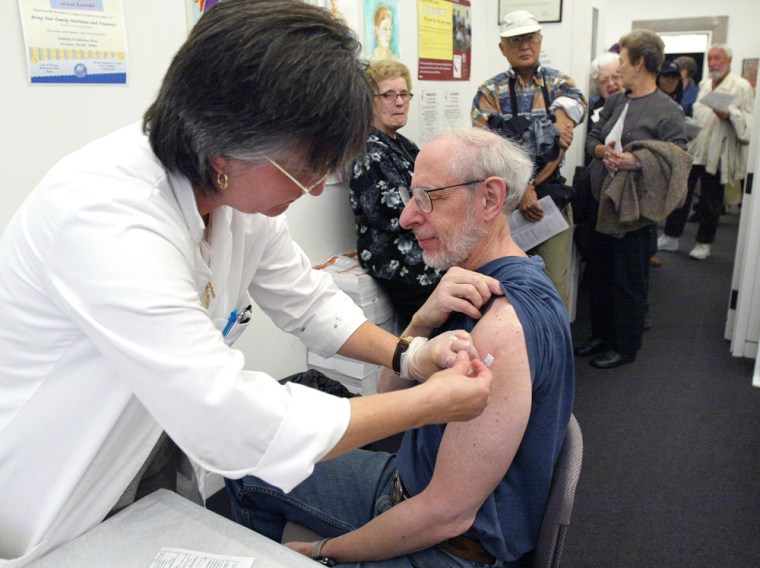We are being told not to worry about bird flu, that our politicians are right on top of the situation and know just what to do if the first human-to-human transmission of bird flu happens.
Oh, really?
Let’s take a look at their track record in this area. Back in the fall of 2004 when the vaccine against ordinary, mundane, plain-old nasty winter flu was in very short supply, this same group in the White House and Congress performed miserably.
That was a warning shot. But no one in Washington seems to have heard it, and that’s what is truly scary about the threat of a bird flu pandemic.
Here’s a reminder how the flu vaccine shortage played out: As this nation geared up to face the annual challenge of the flu, a disease that kills about 35,000 Americans every year and hospitalizes 200,000 more, Chiron Corp. announced that the British government had shut down its vaccine production plant in Liverpool, England.
Tommy Thompson, then head of Health and Human Services, stated in October 2004, that the U.S. government would make sure that the scarce supply of flu shots “reaches those who are most vulnerable.” This meant rationing vaccines so that those over 65, pregnant women, children under age 2, health care workers and those with serious health problems could get vaccinated first. Shortly thereafter, all hell broke loose.
By January 2005 many people in these high-risk groups still had not gotten a flu shot. Instead, college kids were getting vaccinated at their student health services. People were lying about their health to get a shot. Hundreds lined up at Wal-Mart and other locations where everyone who showed up got vaccinated. Doctors gave shots to their favorite patients. Some hospitals simply vaccinated everyone on the premises; others hoarded their supply, refusing to share with other hospitals and clinics.
Rhetoric about the orderly and carefully thought-out rationing of a scarce life-saving resource — flu vaccine — turned into a cacophony of cheating, hoarding, lying and selfishness.
Plus, it was never clear who exactly had the authority to enforce rules about rationing — the CDC, the White House, governors, state health departments or mayors?
Remind you of the response to Hurricane Katrina, by any chance?
So what do we face should there be a pandemic of avian flu? Initially, there would be a couple of months of relying on existing flu vaccines (still in short supply) and anti-viral medicines (also in somewhat short supply) without really knowing if they would do anyone much good. We also might need a lot of hospital beds and ventilators to support those who get sick. But not much discussion has gone on to tell us how these supplies would be rationed.
Later, as scientists and vaccine companies began to figure out how to make vaccines that will work against whatever strain of avian flu is killing people, we would still face shortages. Who gets vaccinated first, and why? Do you know? I don’t, either.
But that is the point. We need transparent and understandable discussion of what the rules for rationing are going to be if the worst-case scenario occurs.

The antidote to hoarding, cheating, lying, confusion and selfishness is clear-cut policies that each of us understands. We also need to know who has the authority to enforce the rules and how they will do so.
The recent experience with flu vaccine was not promising. Your politicians should do more than promise things will go better the next time. They need to stop promising and start acting.
Arthur Caplan is director of the Center for Bioethics at the University of Pennsylvania.
